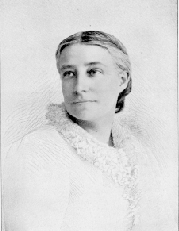A Quote by Warren Farrell
During the years I was on the board of directors of the National Organization for Women in New York City, the most resistant audiences I ever faced in the process of doing corporate workshops on equality in the workplace were not male executives - they were the wives of male executives. As long as her income came from her husband, she was not feeling generous when affirmative action let another woman have a head start vying for her husband's (her) income.
Quote Topics
Action
Affirmative
Affirmative Action
Another
Another Woman
Audiences
Board
Board Of Directors
Came
City
Corporate
Directors
Doing
Equality
Ever
Executives
Faced
Feeling
Generous
Head
Head Start
Her
Husband
Income
Long
Male
Most
National
New
New York
New York City
Organization
Process
She
Start
Were
Wives
Woman
Women
Workplace
Workshops
Years
York
Related Quotes
With The King Center as her base, my mother pressed on to fulfill a role that changed lives and legislation. She was a woman who refused to surrender the reigns of what she knew to be her assignment, even when male civil rights and business leaders tried to convince her that she should leave the work of building her husband's legacy to them.
Adultery is in most cases a theft in the dark. At such moments almost every woman betrays her husband's innermost secrets; becomes a Delilah who discloses to a stranger, discloses to her lover, the mysteries of her husband's strength or weakness. What seems to me treason is, not that women give themselves, but that a woman is prone, when she does so, to justify herself to herself by uncovering her husband's nakedness, exposing it to the inquisitive and scornful gaze of a stranger.
What Hillary Clinton is known for is the bimbo eruptions unit. What she is known for - and the reason that she has been nominated - is that she saved her husband and thus saved the Democrat Party by agreeing to defend her husband and go after the women, and not just the women. She went after the entire conservative movement and blamed us for what her husband was doing! It was "the vast right-wing conspiracy."
I think Hillary Clinton has made great strides in doing so, even though there are people who want to bring us back to the '50s and still define a woman by her husband and her husband's legacy. But she has proven herself to be a force on her own and is an example to us of how women should and can be judged on their own merits.
She realized how many of her beliefs were either unrealistic or belonged to her deceased parents and her ex-husband. She also realized that her expectations for herself and others were sometimes too rigid. She was trying to live up to what everyone else said was best for her, which made her depressed and hard to be around at times. Once she changed her beliefs about herself and others, she began to smile more and enjoy life.
When my first daughter was born, my husband held her in his hands and said, 'My God, she's so beautiful.' I unwrapped the baby from her blankets. She was average size, with long thin fingers and a random assortment of toes. Her eyes were close set, and she had her father's hooked nose. It looked better on him.
In my research, I found that since 1979, women have lost the equivalent to one night's sleep due to the pressures of balancing work and family. And as more women have gone into the work force because they have to, and when you discriminate against a woman's pay you discriminate against her children or her husband or her significant other in terms of what the family income is.
Down the hall came the wife. She was glorious, burning. She didn't know yet that her husband was dead. We knew. That's what gave her such power over us. The doctor took her into a room with a desk at the end of the hall, and from under the closed door a slab of brilliance radiated as if, by some stupendous process, diamonds were being incinerated in there. What a pair of lungs! She shrieked as I imagined an eagle would shriek. It felt wonderful to be alive to hear it! I've gone looking for that feeling everywhere.
My mother could never have said she loved fall, but as she walked down the steps with her suitcase in hand toward the red Monte Carlo her husband had been waiting in for nearly an hour, she could have said that she respected its place as a mediator between two extremes. Fall came and went, while winter was endured and summer was revered. Fall was the repose that made both possible and bearable, and now here she was was with her husband next to her, heading headlong into an early-fall afternoon with only the vaguest ideas of who they were becoming and what came next.
It makes no difference to a widow with her savings in a 5 percent passbook account whether she pays 100 percent income tax on her interest income during a period of zero inflation or pays no income tax during years of 5 percent inflation. Either way, she is 'taxed' in a manner that leaves her no real income whatsoever. Any money she spends comes right out of capital. She would find outrageous a 100 percent income tax but doesn't seem to notice that 5 percent inflation is the economic equivalent.
I talked to my mother about it a lot. I asked her what it was like to grow up in New York and Harlem in the 1920s and 1930s, and I asked her about a woman leaving her husband. I asked her about how she would feel about that woman, and my mother grew up in the Church Of God In Christ, and she told me that the woman might be isolated because the other women thought she might go and come after their husbands. That's how they thought then.
Nora leaves her husband, not-as the stupid critic would have it-because she is tired of her responsibilities or feels the need of woman's rights, but because she has come to know that for eight years she had lived with a stranger and borne him children. Can there be anything more humiliating, more degrading than a life-long proximity between two strangers? No need for the woman to know anything of the man, save his income. As to the knowledge of the woman-what is there to know except that she has a pleasing appearance?
She sat leaning back in her chair, looking ahead, knowing that he was as aware of her as she was of him. She found pleasure in the special self-consciousness it gave her. When she crossed her legs, when she leaned on her arm against the window sill, when she brushed her hair off her forehead - every movement of her body was underscored by a feeling the unadmitted words for which were: Is he seeing it?





































